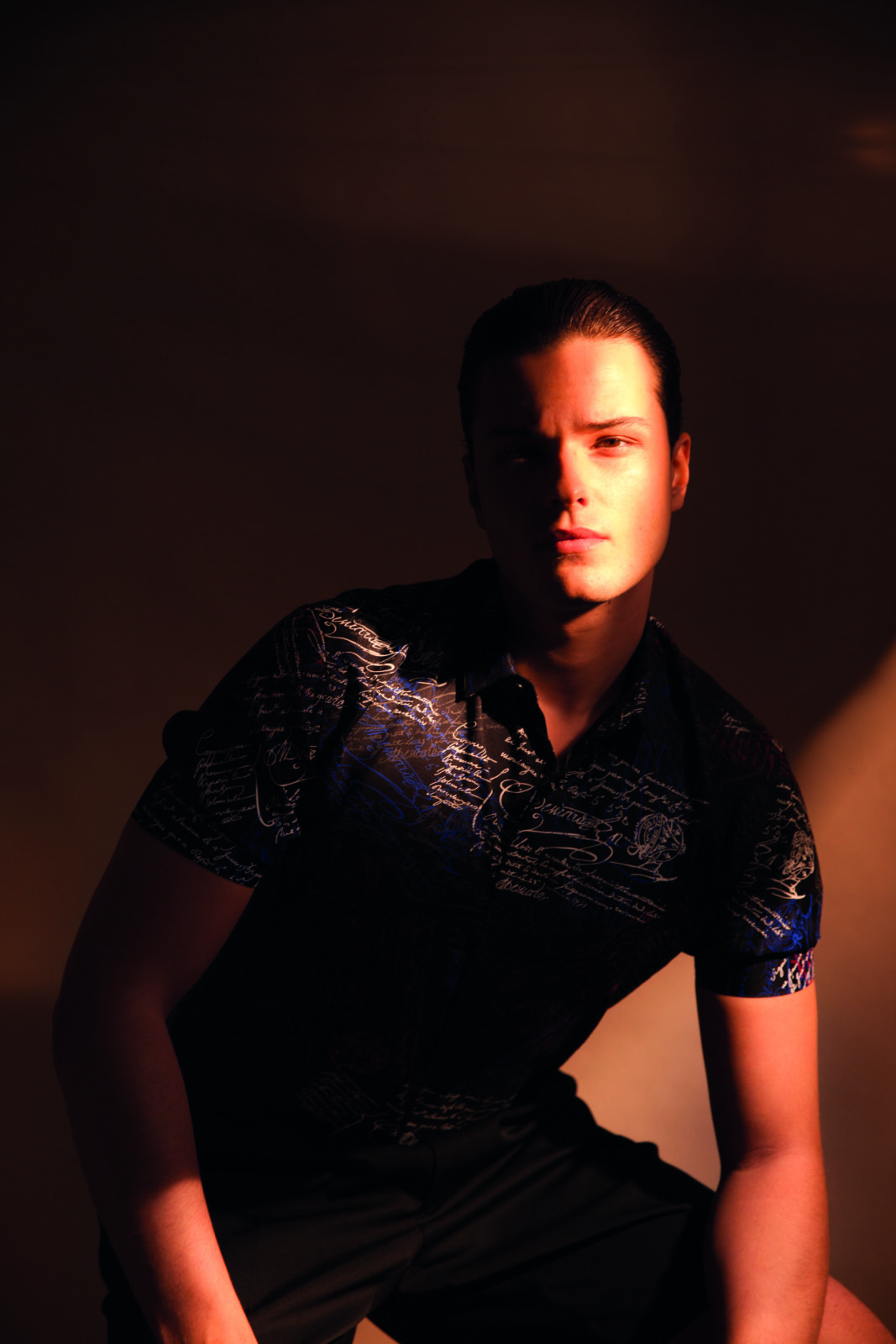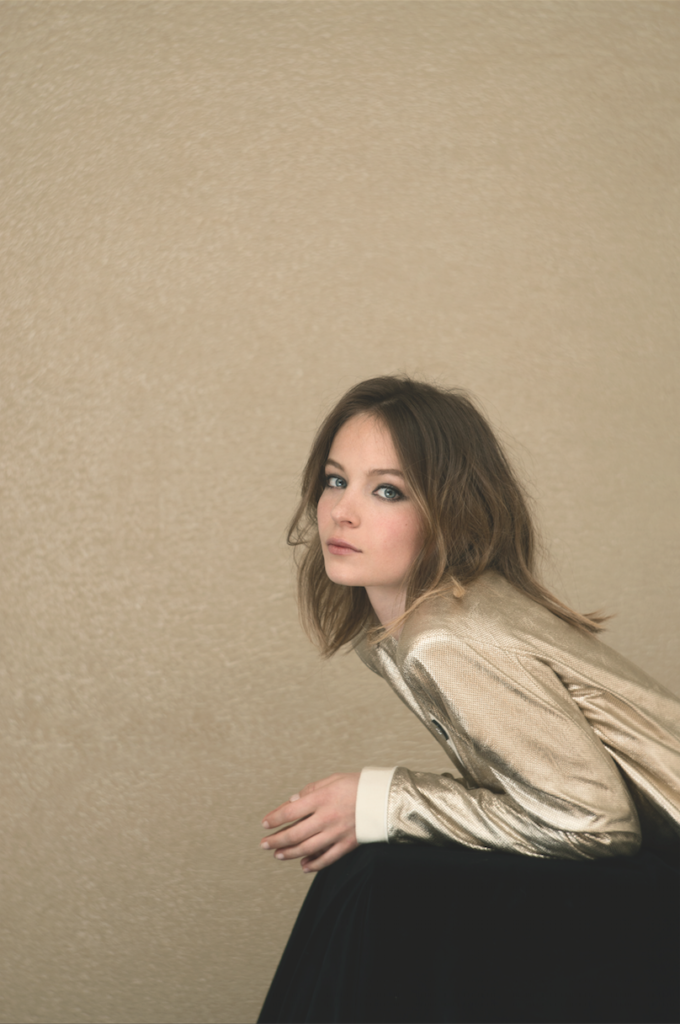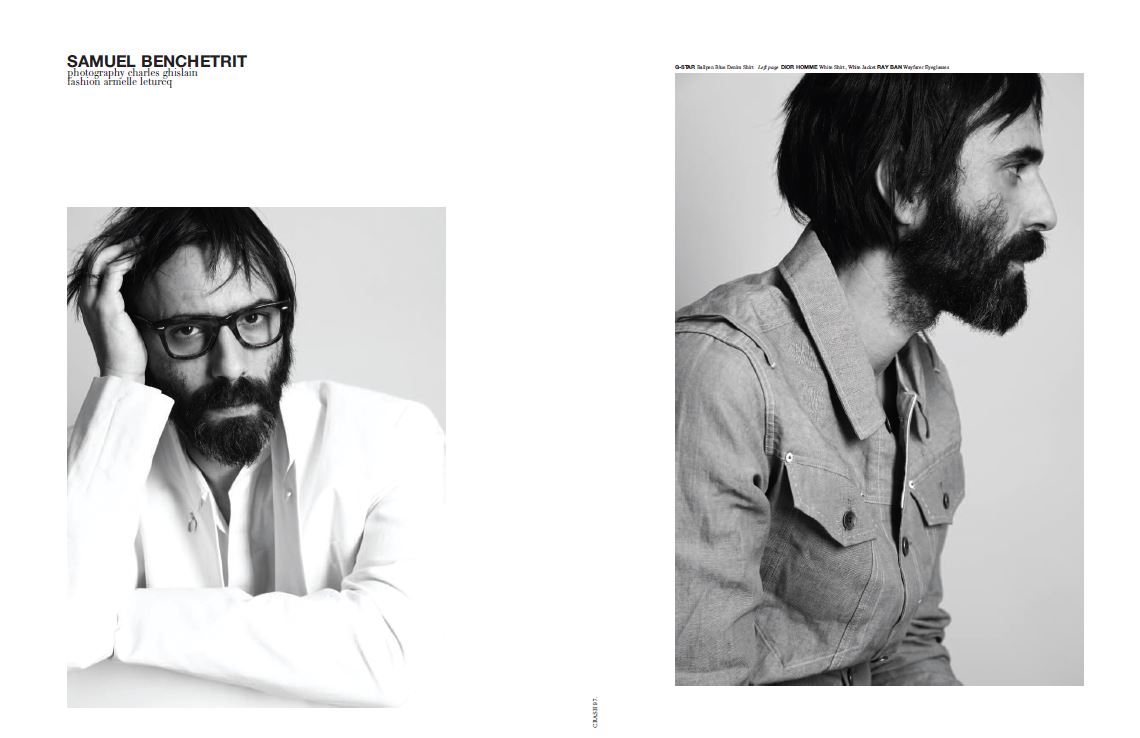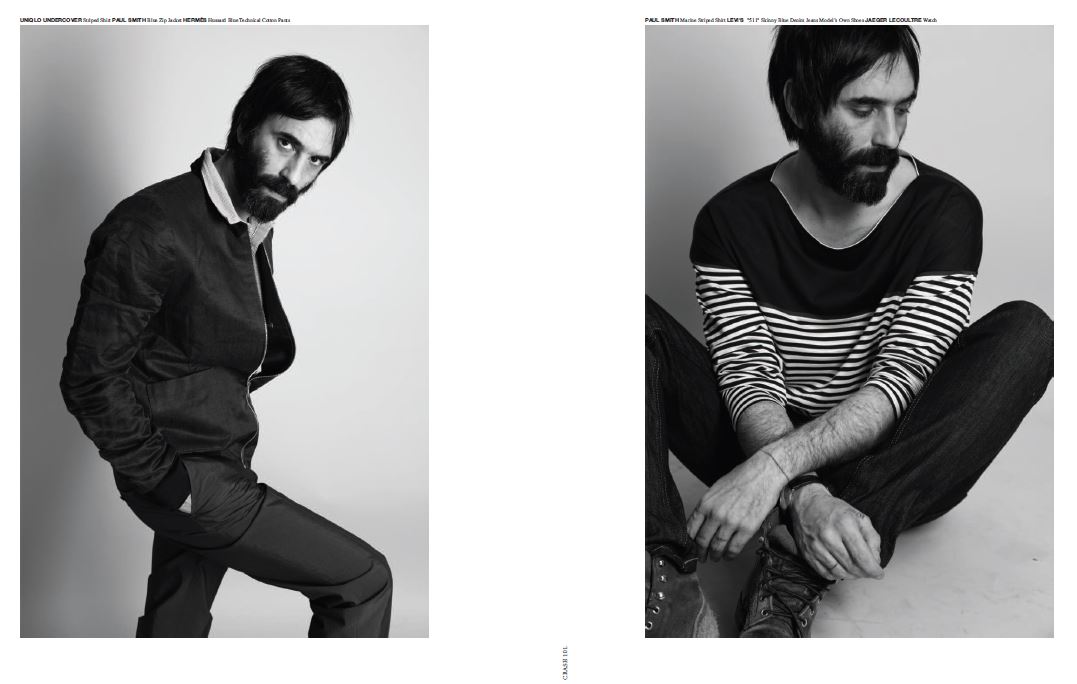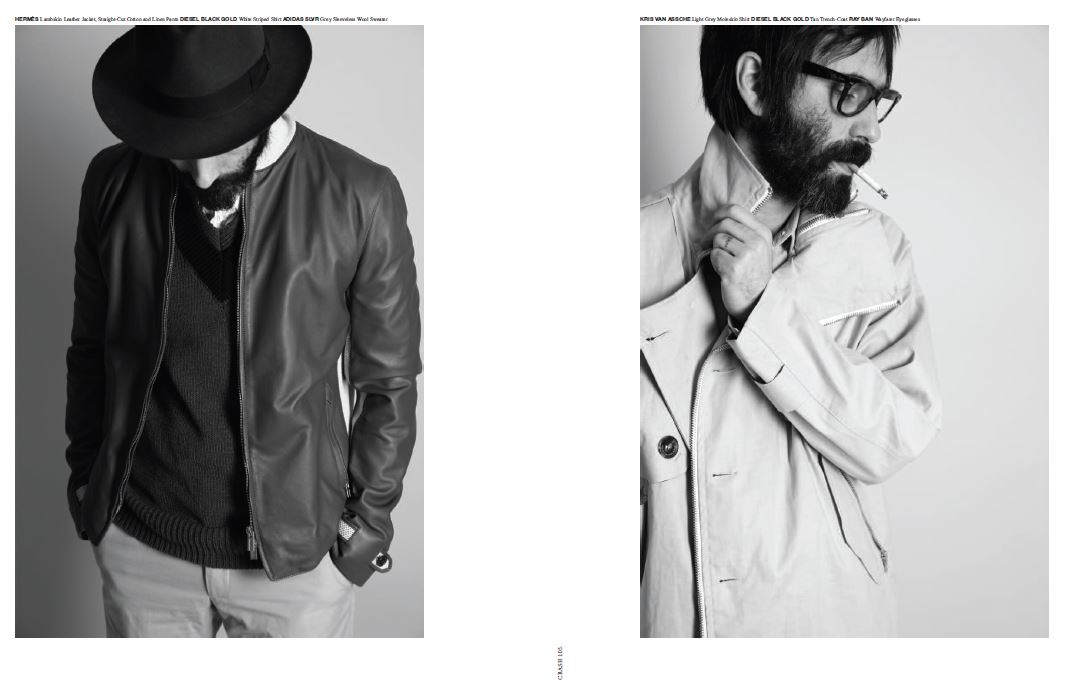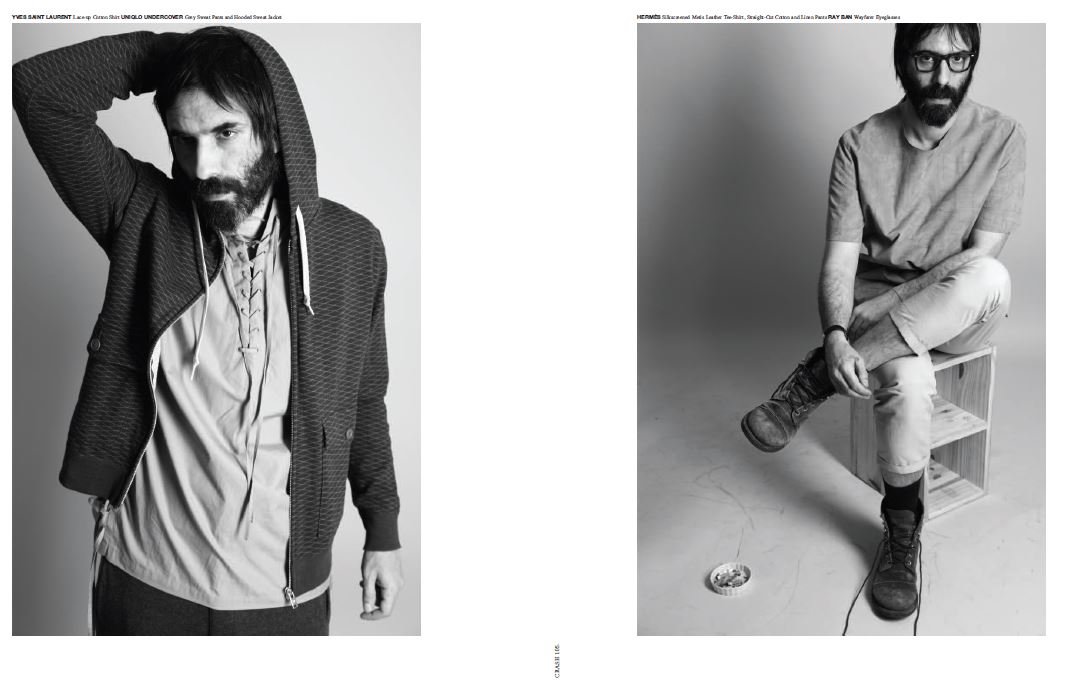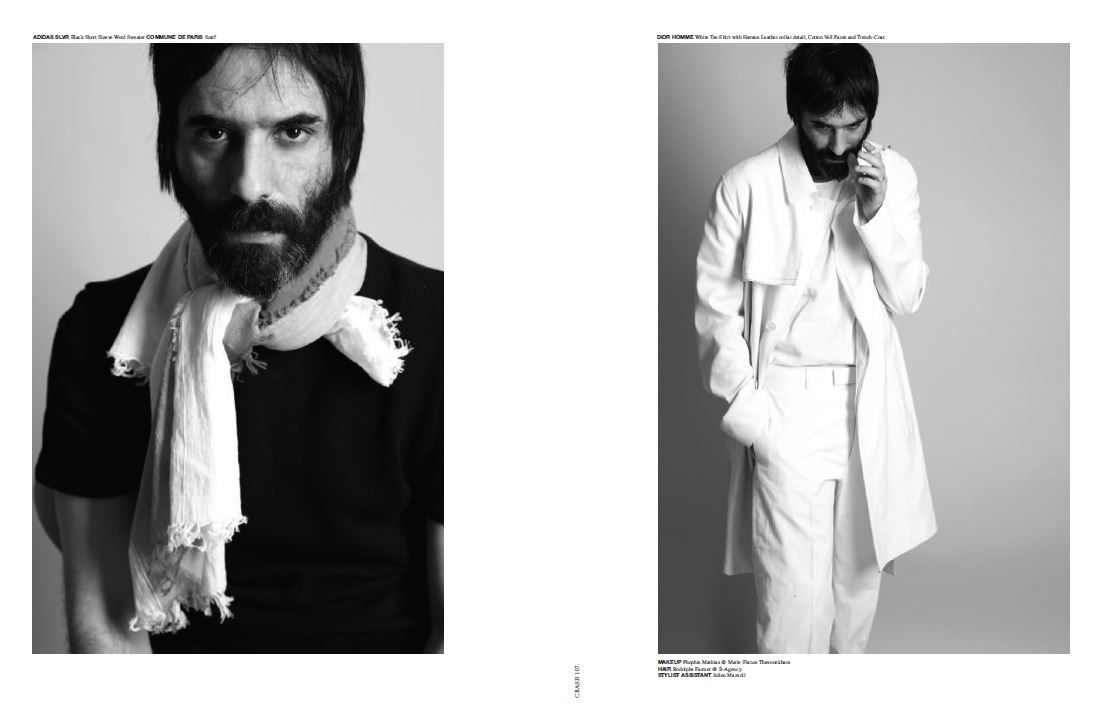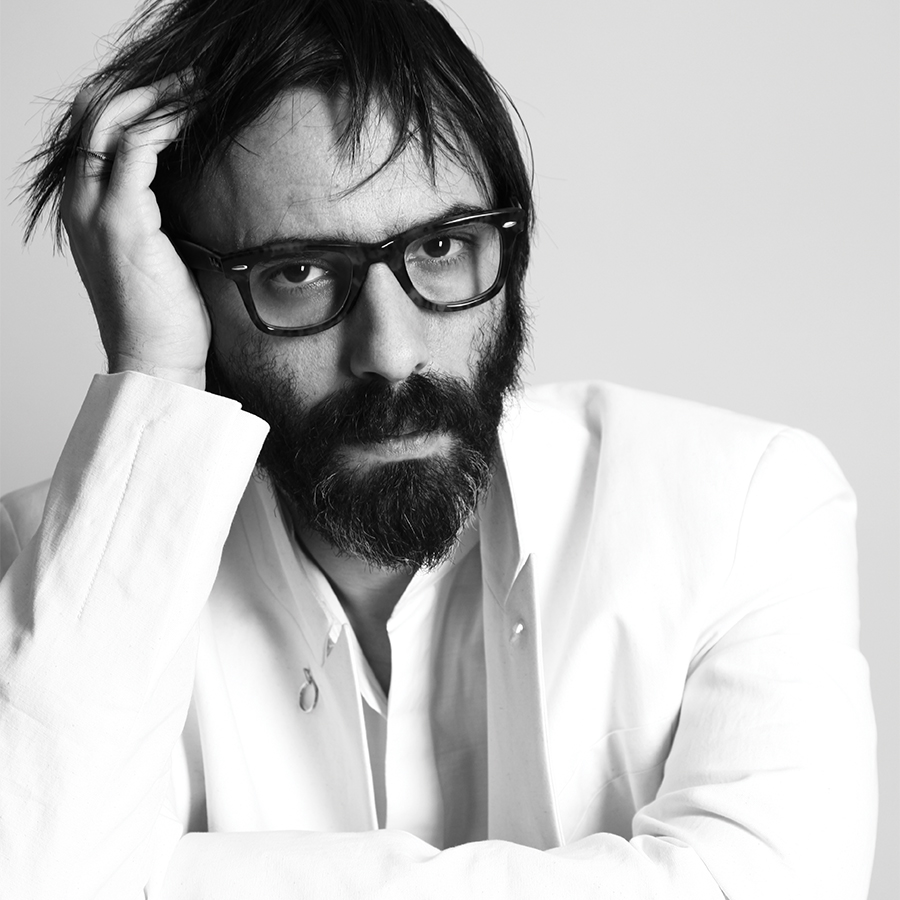
SAMUEL BENCHETRIT ON DIRECTING
By Crash redaction
SAMUEL BENCHETRIT INTERVIEW ON DIRECTING: WRITER, ACTOR, AND DIRECTOR SAMUEL BENCHETRIT IS A CREATIVE LABORATORY IN PERMANENT OPERATION. A UNIQUE FIGURE IN THE FRENCH SCENE, HE DESCRIBES HIMSELF AS A PERSON IN PERPETUAL MOVEMENT. HE JUST ACTED IN JACQUES DOILLON’S UPCOMING FILM, UN ENFANT DE TOI, AND IS ALREADY STARTING A NEW PROJECT WITH THE SAME DIRECTOR. HE’S ALSO PLANNING HIS OWN NEXT FEATURE FILM WITH JEAN-LOUIS TRINTIGNANT IN ONE OF THE LEAD ROLES.
Interview by Armelle Leturcq
You’re a writer, director, and actor… how do you think of yourself?
Acting is kind of new. And I don’t have any ambitions to be an actor: I just do it when I get an interesting offer. My goal is actually to produce as much as possible. What i find interesting is this idea of the “permanent workshop.” It’s the kind of thing that can take all kinds of different shapes, whether it be a book or a film or something else. I like to be at work on something, to be on the hunt for something. I try to make one thing every day: whether it’s a photo or something else. I don’t talk a lot so I try to transfigure things, enrich myself by reading, watching movies, or taking walks. but the main idea is to keep moving. actually i’m in the middle of building a camper. I go to southern France a lot so i like this idea of having a movable house. I like living simply, returning to something more spiritual.
When you were a kid, when did you say to yourself, “i’m going to be a creator”?
Actually I think all human beings are born creators. What kids love most at first is playing, drawing, painting… then we educate them, sometimes overeducate them, and we say, “no, don’t do it like that.” i was lucky not to have been too broken down on that level. i have two children and the only things my four and a half year old daughter likes are drawing, painting, and watching movies. i think i’ve managed to hang on to that same attitude.
You left high school at 15. What was school like for you? A reprogramming?
I was unhappy at school because I expected so much from it. Unfortunately I lived in a poorer neighborhood and my school had begun to deteriorate. There were 3,000 of us in a school built for 1,500 kids. but my interior world was quite powerful. I had a passion and I kept learning outside of school. school was like a monument, or museum emptied of its paintings. there were some great teachers, but it’s like they lacked the proper tools. Like the paintings they were talking about no longer existed…
You started out by writing…
It’s the cheapest thing to do. film is obviously a lot more expensive – it’s a full-blown industry. and theater is more complicated. But everything is writing at first, even movies. Writing involves a different relationship with solitude, and with money, too. When you direct a film, you give your script to a producer who says each page will cost this or that much. to make a film you have to get a lot of people involved. What interests me most in creation is movement. I think film always slows you down, even when you barely script it or improvise it. As soon as you want to shoot a scene, problems come up almost right away. With photography, you can take your camera and snap a photo immediately, but there are still these kinds of technical problems.
How did acting come along? By chance?
A long time ago someone asked me to act in a movie, but I was obsessed with the idea of directing. I thought acting would just be a distraction. But I ended up doing it and it went badly so I thought, “ok, no one’s going to contact me again.” Then Anna [Mouglalis] put me in her first short film. And since we knew each other perfectly, I was a lot more natural and it went great. So I came out of it wanting to act again, and I later received an offer to play Pierre Goldman in a film for the french tvchannel Canal +. He was an extreme leftist, a rebel, and I felt close to him because he was a writer. His relationship to judaism interested me, too, so i took the part. More recently, I just finished a film with Jacques Doillon. I had always really wanted to work with him and it turned out to be incredible: he can get actors to do amazing things. It’s called Un enfant de toi and also stars Lou Doillon. The story is something like a comedy and a love story about a couple that gets back together, and there’s a kid in the middle of it all. While they’re still editing that one, we’re about to get started on the next one, with Sarah Forestier. This one will be a lot more violent: a couple destroying each other and doing it physically. Doillon is a superbly refined individual. He has this rather feminine side, and I only like men who have that kind of feminine side, like Jean-Louis Trintignant with whom I’m very close. It’s been a while since Jacques Doillon has directed a film. He always has trouble putting his projects together because he says no to a certain kind of film industry. He’s a rebel, and I admire him for that. He fights hard to keep making movies how he wants, with no compromises. He’s an incredible figure: he shoots in digital with two cameras, he does sequence shots that last fifteen to twenty minutes – it’s unbelievable.
What about your plans as a director?
I’m going to direct a movie next year. It’s a highly personal project on the subject of tenderness. Starring Jean-Louis Trintignant, actually. people have always told me I have a tender way of looking at the characters in my films, so I want to build on that and do something more intimate. It’ll be the first time I make a movie about an emotion. I’ve done three movies, and the last one, chez gino, was a total failure and a real slap in the face! I always wanted to be a gangster was was done with very little money and it was a success. But with the last one I was working with a script I had written a long time before, and I didn’t really feel the same connection with the story. So I added some things that didn’t really fit in with the original script, and in the end the wholething went back and forth between a typical comedy and an indie art film. My first three films reference a lot of other films. My next film won’t reference anything. It’s really important to me to film with people like Doillon and Anna Mougalis. As a couple, we’re always teaching each other new things. We’re not really interested in the same stuff so we help each other out a lot.
Is it easy for you to find support from producers?
Luckily there are some people who support me now. When my last film came out, people called me saying: it’s tough, but we’re there for you. For example, Luc Besson, who has always encouraged me, told me, “I know how it is: you feel hurt when a film doesn’t work.” some actors and financers still stand by me, too. sometimes i see movies i like but the public doesn’t, and it’s just a tough situation.
Do you think of yourself as a politically active artist?
I think an artist has to be politically active. Personally I can’t help myself. I was raised by politically active individuals, from the working class and on the left. Though I have to say I’m not very interested in the upcoming elections. I’ll always vote more on the left than the right, but I’m in a double bind. I can’t believe what anyone says. It’s like watching a play, a sick comedy where no one laughs. Right now i’m most interested in feminism. I was never really aware of the place of women in france until recently. Anna – who has played some of the most influential women of the last century, like Beauvoir, Coco Chanel, and Juliette Gréco – clued me into the subject. There’s something that’s not working both in the world and in France: this atmosphere of male chauvinism, the fact that women are always paid less than men, that they have to act like men to obtain any power. We like to think “oh I’m not racist, and I’m not sexist,” but i realized that even when I’m directing women on stage or on set, I sometimes have these attitudes that are influenced by the atmosphere of chauvinism. It took me a long time to make that realization and it’s an upsetting one. Anna is involved in different organizations that defend women’s rights and it’s had a big impact on me, even on the way i think of female characters. I really prefer women. More and more I’m just distrustful of men. I was curious about where Martine Aubry could go, and I’ve noticed how we’re doing everything we can to destroy Eva Joly today. She’s under total attack by public opinion. If you say you support her it’s like you’re insane. There’s really no place for women in politics in today’s France. Even when a woman attacks her, she does it like a man. We live in a man’s world, made by men. religion, politics, money: it’s all controlled by men. We almost have to burn the book and rewrite everything…
Interview from Crash 59






